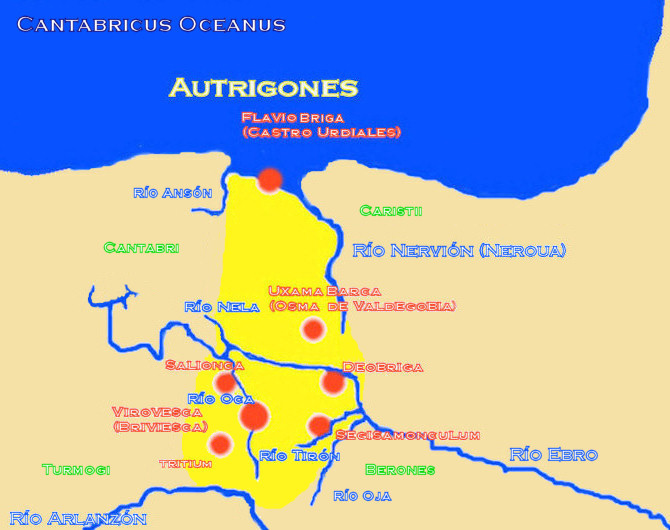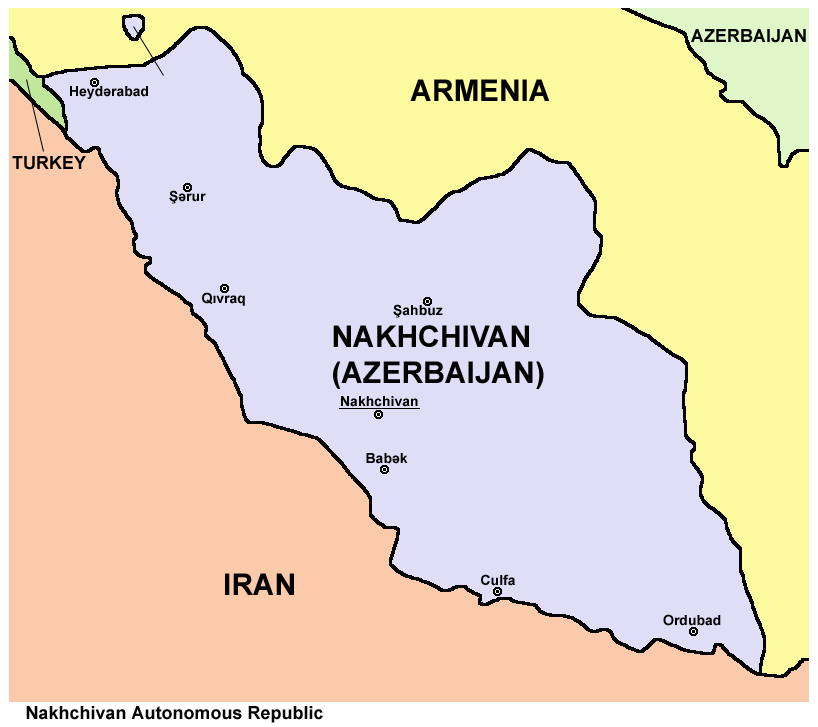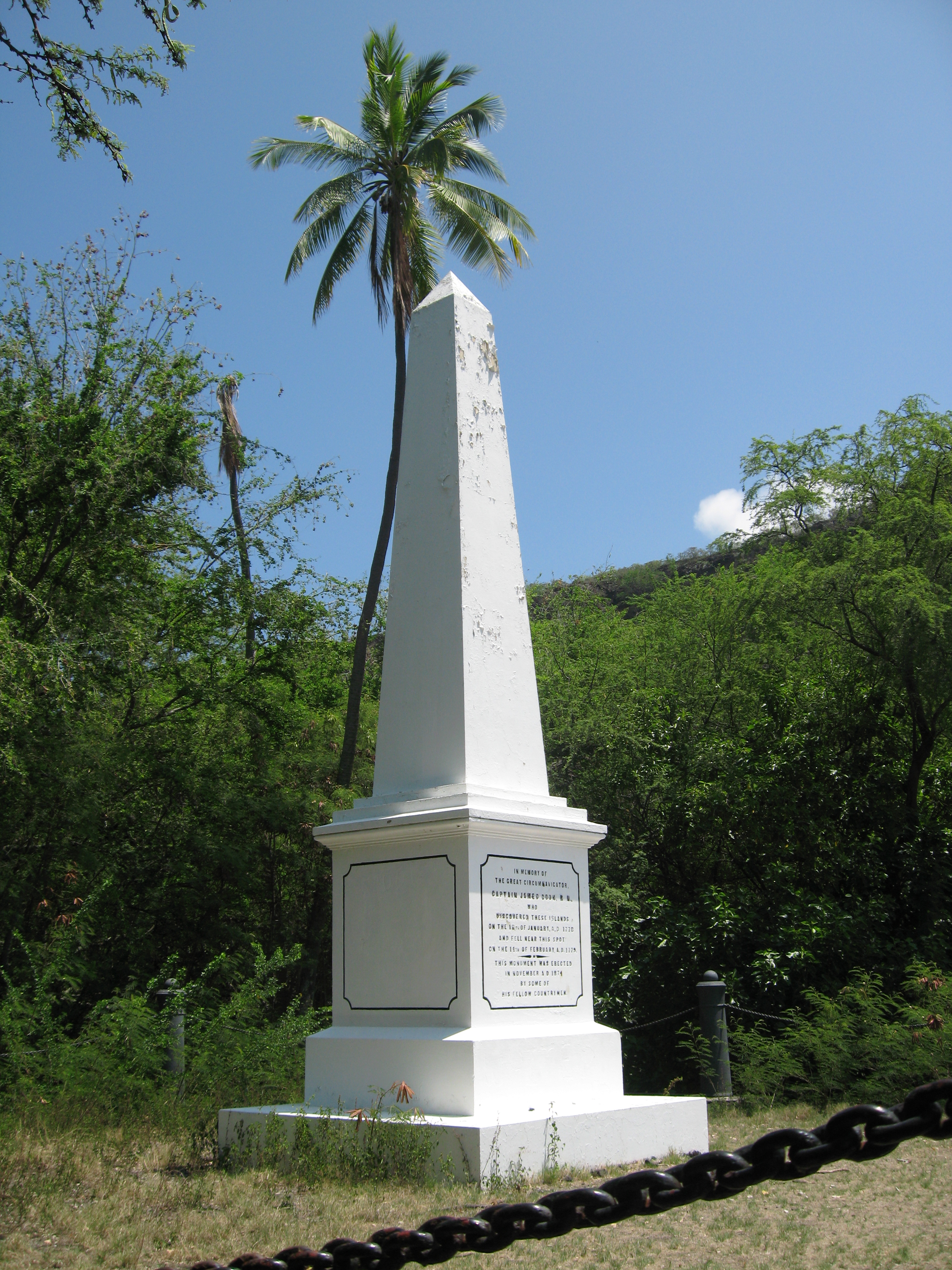|
Treviño Exclave
Treviño (in Basque: Trebiñu) is the capital of the municipality Condado de Treviño, province of Burgos, in the autonomous community of Castile and León, Spain. The Condado de Treviño and the geographically smaller La Puebla de Arganzón make up the enclave of Treviño. Although the enclave is part of Burgos (and, hence, part of the autonomous community of Castile and León) it is surrounded by the province of Álava, part of the autonomous community of the Basque Country. Hence, properly speaking, the enclave of Treviño is an ''enclave'' within Álava, and an ''exclave'' of Burgos. History An abundance of prehistoric remains testify that the Condado de Treviño has been inhabited since ancient times. In pre-Roman times, the Varduls, Caristios and Autrigones all lived here at one time or another, attesting to the region's strategic importance. At the beginning of the 11th century, Alavese ''comarcas'' of the river ''Ivita'' began to be established, in the basin of w ... [...More Info...] [...Related Items...] OR: [Wikipedia] [Google] [Baidu] |
Minor Local Entity
In some communities of Spain, minor local entity () is a territorial entity of scope smaller than municipality defined and regulated by the regional governments. Some examples are ''caseríos, parroquias, aldeas, barrios, anteiglesias, concejos, pedanías, lugares anejos'', decentralised municipal entity () in Catalonia, autonomous local entity () in Andalucía, rural parish () in Asturias. The administration of these entities have various names including an concejo abierto, a single person mayor called ''Alcalde pedáneo'' and a rural council () and councils of Álava. There are almost 4000 minor local entities; most of them (2,226) are to be found in the autonomous community of Castilla y Leon. See also * Local government in Spain Local may refer to: Geography and transportation * Local (train), a train serving local traffic demand * Local, Missouri, a community in the United States Arts, entertainment, and media * ''Local'' (comics), a limited series comic book by ... [...More Info...] [...Related Items...] OR: [Wikipedia] [Google] [Baidu] |
Municipalities Of Spain
The municipality (, , , , , )In other languages of Spain: *Catalan language, Catalan/Valencian (), grammatical number, sing. . *Galician language, Galician () or (), grammatical number, sing. /. *Basque language, Basque (), grammatical number, sing. . *Asturian language, Asturian (), grammatical number, sing. . is one of the two fundamental territorial divisions in Spain, the other being the Provinces of Spain, provinces. Organisation Although provinces of Spain, provinces are groupings of municipality, municipalities, there is no implied hierarchy or primacy of one over the other. Instead the two entities are defined according to the authority or jurisdiction of each (). Some autonomous communities also group municipalities into entities known as ''comarcas of Spain, comarcas'' (districts) or ''mancomunidades'' (commonwealths). The governing body in most municipalities is called ''Ayuntamiento (Spain), ayuntamiento'' (municipal council or municipal corporation, corpora ... [...More Info...] [...Related Items...] OR: [Wikipedia] [Google] [Baidu] |
Autrigones
The Autrigones were a pre-Roman tribe that settled in the north of the Iberian Peninsula, in what today is the western Basque Country (western regions of Biscay and Álava) and northern Burgos and the East of Cantabria, Spain. Their territory limited with the Cantabri territory at west, the Caristii at east, the Berones at the southeast and the Turmodigi at the south. It is discussed whether the Autrigones were Celts, theory supported by the existence of toponyms of Celtic origin, such as ''Uxama Barca'' and other with ''-briga'' endings and that eventually underwent a Basquisation along with other neighboring tribes such as the Caristii and Varduli. Location Roman historians as Pomponius Mela and Pliny the Elder located them in the northern region of present-day province of Burgos. Pliny the Elder writes about the "ten states of the Autrigones" and says the only ones worth mentioning are ''Tritium Autrigonum'' ( Monasterio de Rodilla, Burgos) and ''Virovesca'' (possibly the p ... [...More Info...] [...Related Items...] OR: [Wikipedia] [Google] [Baidu] |
Roman Empire
The Roman Empire ruled the Mediterranean and much of Europe, Western Asia and North Africa. The Roman people, Romans conquered most of this during the Roman Republic, Republic, and it was ruled by emperors following Octavian's assumption of effective sole rule in 27 BC. The Western Roman Empire, western empire collapsed in 476 AD, but the Byzantine Empire, eastern empire lasted until the fall of Constantinople in 1453. By 100 BC, the city of Rome had expanded its rule from the Italian peninsula to most of the Mediterranean Sea, Mediterranean and beyond. However, it was severely destabilised by List of Roman civil wars and revolts, civil wars and political conflicts, which culminated in the Wars of Augustus, victory of Octavian over Mark Antony and Cleopatra at the Battle of Actium in 31 BC, and the subsequent conquest of the Ptolemaic Kingdom in Egypt. In 27 BC, the Roman Senate granted Octavian overarching military power () and the new title of ''Augustus (title), Augustus'' ... [...More Info...] [...Related Items...] OR: [Wikipedia] [Google] [Baidu] |
Mapa Treviño En Burgos
Mapa or MAPA may refer to: People * Alec Mapa Alejandro "Alec" Mapa (; born July 10, 1965) is an United States, American actor, comedian and writer. He got his first professional break when he was cast to replace B. D. Wong for the role of Song Liling in the Broadway theatre, Broadway product ... (born 1965), American actor, comedian and writer * Dennis Mapa (born 1969), Filipino economist and statistician * Jao Mapa (born 1976), Filipino actor * Placido Mapa Jr. (born 1932), Filipino businessman, economist, and government official * Suraj Mapa (born 1980), Sri Lankan actor * Victorino Mapa (1855–1927), Filipino chief justice and government official Other uses * "Mapa" (song), a 2021 song by SB19 * Mexican American Political Association * Mapa (publisher), an Israeli subsidiary of Ituran * Mapa Group, a Turkish conglomerate * Mapa, a company producing latex gloves that merged with Hutchinson SA in 1973 * Most Affected People and Areas, a climate justice concept * ... [...More Info...] [...Related Items...] OR: [Wikipedia] [Google] [Baidu] |
Exclave
An enclave is a territory that is entirely surrounded by the territory of only one other state or entity. An enclave can be an independent territory or part of a larger one. Enclaves may also exist within territorial waters. ''Enclave'' is sometimes used improperly to denote a territory that is only partly surrounded by another state. Enclaves that are not part of a larger territory are not exclaves, for example Lesotho (enclaved by South Africa), and San Marino and Vatican City (both enclaved by Italy) are enclaved sovereign states. An exclave is a portion of a state or district geographically separated from the main part, by some surrounding alien territory. Many exclaves are also enclaves, but an exclave surrounded by the territory of more than one state is not an enclave. The Azerbaijani exclave of Nakhchivan is an example of an exclave that is not an enclave, as it borders Armenia, Iran, and Turkey. Semi-enclaves and semi-exclaves are areas that, except for possessing ... [...More Info...] [...Related Items...] OR: [Wikipedia] [Google] [Baidu] |
Enclave
An enclave is a territory that is entirely surrounded by the territory of only one other state or entity. An enclave can be an independent territory or part of a larger one. Enclaves may also exist within territorial waters. ''Enclave'' is sometimes used improperly to denote a territory that is only partly surrounded by another state. Enclaves that are not part of a larger territory are not exclaves, for example Lesotho (enclaved by South Africa), and San Marino and Vatican City (both enclaved by Italy) are enclaved sovereign states. An exclave is a portion of a state or district geographically separated from the main part, by some surrounding alien territory. Many exclaves are also enclaves, but an exclave surrounded by the territory of more than one state is not an enclave. The Azerbaijani exclave of Nakhchivan is an example of an exclave that is not an enclave, as it borders Armenia, Iran, and Turkey. Semi-enclaves and semi-exclaves are areas that, except for possessing ... [...More Info...] [...Related Items...] OR: [Wikipedia] [Google] [Baidu] |
Basque Country (autonomous Community)
The Basque Country or Basque Autonomous Community (), also officially called Euskadi (), is an Autonomous communities of Spain, autonomous community in northern Spain. It includes the Basque provinces of Álava, Araba, Biscay, Bizkaia, and Gipuzkoa. It surrounds two enclaves called Treviño enclave, Treviño (Province of Burgos, Burgos) and Valle de Villaverde (Cantabria). The Basque Country was granted the status of ''Nationalities and regions of Spain, nationality'', attributed by the Spanish Constitution of 1978. The autonomous community is based on the Statute of Autonomy of the Basque Country, a foundational legal document providing the framework for the development of the Basque people on Southern Basque Country. Parallelly, Navarre, which narrowly rejected a joint statute of autonomy in 1932, was granted a separate chartered statute in 1982. Currently there is no official capital in the autonomous community, but the city of Vitoria-Gasteiz, in the province of Álava, is ... [...More Info...] [...Related Items...] OR: [Wikipedia] [Google] [Baidu] |
Álava
Álava () or Araba (), officially Araba/Álava, is a Provinces of Spain, province of Spain and a historical territory of the Basque Country (autonomous community), Basque Country, heir of the ancient Basque señoríos#Lords of Álava, Lordship of Álava, former medieval Catholic bishopric and now Latin titular see. Its capital city, Vitoria-Gasteiz, is also the seat of the political main institutions of the Basque Country (autonomous community), Basque Autonomous Community. It borders the Basque provinces of Biscay and Gipuzkoa to the north, the community of La Rioja (Spain), La Rioja to the south, the province of Burgos (in the community of Castile and León) to the west and the community of Navarre to the east. The Treviño enclave, Enclave of Treviño, surrounded by Alavese territory, is however part of the province of Burgos, thus belonging to the autonomous community of Castile and León, not Álava. It is the largest of the three provinces in the Basque Autonomous Communi ... [...More Info...] [...Related Items...] OR: [Wikipedia] [Google] [Baidu] |
Enclave Of Treviño
An enclave is a territory that is entirely surrounded by the territory of only one other state or entity. An enclave can be an independent territory or part of a larger one. Enclaves may also exist within territorial waters. ''Enclave'' is sometimes used improperly to denote a territory that is only partly surrounded by another state. Enclaves that are not part of a larger territory are not exclaves, for example Lesotho (enclaved by South Africa), and San Marino and Vatican City (both enclaved by Italy) are enclaved sovereign states. An exclave is a portion of a state or district geographically separated from the main part, by some surrounding alien territory. Many exclaves are also enclaves, but an exclave surrounded by the territory of more than one state is not an enclave. The Azerbaijani exclave of Nakhchivan is an example of an exclave that is not an enclave, as it borders Armenia, Iran, and Turkey. Semi-enclaves and semi-exclaves are areas that, except for possessing an ... [...More Info...] [...Related Items...] OR: [Wikipedia] [Google] [Baidu] |




